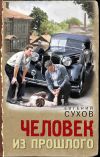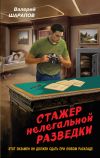Текст книги "Jane Eyre"

Автор книги: Charlotte Bronte
Жанр: Иностранные языки, Наука и Образование
Возрастные ограничения: +16
сообщить о неприемлемом содержимом
Текущая страница: 16 (всего у книги 36 страниц)
But in other points, as well as this, I was growing very lenient to my master: I was forgetting all his faults, for which I had once kept a sharp look-out. It had formerly been my endeavour to study all sides of his character: to take the bad with the good; and from the just weighing of both, to form an equitable judgment. Now I saw no bad. The sarcasm that had repelled, the harshness that had startled me once, were only like keen condiments in a choice dish: their presence was pungent, but their absence would be felt as comparatively insipid. And as for the vague something-was it a sinister or a sorrowful, a designing or a desponding expression? – that opened upon a careful observer, now and then, in his eye, and closed again before one could fathom the strange depth partially disclosed; that something which used to make me fear and shrink, as if I had been wandering amongst volcanic-looking hills, and had suddenly felt the ground quiver and seen it gape: that something, I, at intervals, beheld still; and with throbbing heart, but not with palsied nerves. Instead of wishing to shun, I longed only to dare-to divine it; and I thought Miss Ingram happy, because one day she might look into the abyss at her leisure, explore its secrets and analyse their nature.
Meantime, while I thought only of my master and his future bride-saw only them, heard only their discourse, and considered only their movements of importance-the rest of the party were occupied with their own separate interests and pleasures. The Ladies Lynn and Ingram continued to consort in solemn conferences, where they nodded their two turbans at each other, and held up their four hands in confronting gestures of surprise, or mystery, or horror, according to the theme on which their gossip ran, like a pair of magnified puppets. Mild Mrs. Dent talked with good-natured Mrs. Eshton; and the two sometimes bestowed a courteous word or smile on me. Sir George Lynn, Colonel Dent, and Mr. Eshton discussed politics, or county affairs, or justice business. Lord Ingram flirted with Amy Eshton; Louisa played and sang to and with one of the Messrs. Lynn; and Mary Ingram listened languidly to the gallant speeches of the other. Sometimes all, as with one consent, suspended their by-play to observe and listen to the principal actors: for, after all, Mr. Rochester and-because closely connected with him-Miss Ingram were the life and soul of the party. If he was absent from the room an hour, a perceptible dulness seemed to steal over the spirits of his guests; and his re-entrance was sure to give a fresh impulse to the vivacity of conversation.
The want of his animating influence appeared to be peculiarly felt one day that he had been summoned to Millcote on business, and was not likely to return till late. The afternoon was wet: a walk the party had proposed to take to see a gipsy camp, lately pitched on a common beyond Hay, was consequently deferred. Some of the gentlemen were gone to the stables: the younger ones, together with the younger ladies, were playing billiards in the billiard-room. The dowagers Ingram and Lynn sought solace in a quiet game at cards. Blanche Ingram, after having repelled, by supercilious taciturnity, some efforts of Mrs. Dent and Mrs. Eshton to draw her into conversation, had first murmured over some sentimental tunes and airs on the piano, and then, having fetched a novel from the library, had flung herself in haughty listlessness on a sofa, and prepared to beguile, by the spell of fiction, the tedious hours of absence. The room and the house were silent: only now and then the merriment of the billiard-players was heard from above.
It was verging on dusk, and the clock had already given warning of the hour to dress for dinner, when little Adèle, who knelt by me in the drawing-room window-seat, suddenly exclaimed-
“Voilà Monsieur Rochester, qui revient!”
I turned, and Miss Ingram darted forwards from her sofa: the others, too, looked up from their several occupations; for at the same time a crunching of wheels and a splashing tramp of horse-hoofs became audible on the wet gravel. A post-chaise was approaching.
“What can possess him to come home in that style?” said Miss Ingram. “He rode Mesrour (the black horse), did he not, when he went out? and Pilot was with him:-what has he done with the animals?”
As she said this, she approached her tall person and ample garments so near the window, that I was obliged to bend back almost to the breaking of my spine: in her eagerness she did not observe me at first, but when she did, she curled her lip and moved to another casement. The post-chaise stopped; the driver rang the door-bell, and a gentleman alighted attired in travelling garb; but it was not Mr. Rochester; it was a tall, fashionable-looking man, a stranger.
“How provoking!” exclaimed Miss Ingram: “you tiresome monkey!” (apostrophising Adèle), “who perched you up in the window to give false intelligence?” and she cast on me an angry glance, as if I were in fault.
Some parleying was audible in the hall, and soon the new-comer entered. He bowed to Lady Ingram, as deeming her the eldest lady present.
“It appears I come at an inopportune time, madam,” said he, “when my friend, Mr. Rochester, is from home; but I arrive from a very long journey, and I think I may presume so far on old and intimate acquaintance as to instal myself here till he returns.”
His manner was polite; his accent, in speaking, struck me as being somewhat unusual, – not precisely foreign, but still not altogether English: his age might be about Mr. Rochester’s, – between thirty and forty; his complexion was singularly sallow: otherwise he was a fine-looking man, at first sight especially. On closer examination, you detected something in his face that displeased, or rather that failed to please. His features were regular, but too relaxed: his eye was large and well cut, but the life looking out of it was a tame, vacant life-at least so I thought.
The sound of the dressing-bell dispersed the party. It was not till after dinner that I saw him again: he then seemed quite at his ease. But I liked his physiognomy even less than before: it struck me as being at the same time unsettled and inanimate. His eye wandered, and had no meaning in its wandering: this gave him an odd look, such as I never remembered to have seen. For a handsome and not an unamiable-looking man, he repelled me exceedingly: there was no power in that smooth-skinned face of a full oval shape: no firmness in that aquiline nose and small cherry mouth; there was no thought on the low, even forehead; no command in that blank, brown eye.
As I sat in my usual nook, and looked at him with the light of the girandoles on the mantelpiece beaming full over him-for he occupied an arm-chair drawn close to the fire, and kept shrinking still nearer, as if he were cold, I compared him with Mr. Rochester. I think (with deference be it spoken) the contrast could not be much greater between a sleek gander and a fierce falcon: between a meek sheep and the rough-coated keen-eyed dog, its guardian.
He had spoken of Mr. Rochester as an old friend. A curious friendship theirs must have been: a pointed illustration, indeed, of the old adage that “extremes meet.”
Two or three of the gentlemen sat near him, and I caught at times scraps of their conversation across the room. At first I could not make much sense of what I heard; for the discourse of Louisa Eshton and Mary Ingram, who sat nearer to me, confused the fragmentary sentences that reached me at intervals. These last were discussing the stranger; they both called him “a beautiful man.” Louisa said he was “a love of a creature,” and she “adored him;” and Mary instanced his “pretty little mouth, and nice nose,” as her ideal of the charming.
“And what a sweet-tempered forehead he has!” cried Louisa, – “so smooth-none of those frowning irregularities I dislike so much; and such a placid eye and smile!”
And then, to my great relief, Mr. Henry Lynn summoned them to the other side of the room, to settle some point about the deferred excursion to Hay Common.
I was now able to concentrate my attention on the group by the fire, and I presently gathered that the new-comer was called Mr. Mason; then I learned that he was but just arrived in England, and that he came from some hot country: which was the reason, doubtless, his face was so sallow, and that he sat so near the hearth, and wore a surtout in the house. Presently the words Jamaica, Kingston, Spanish Town, indicated the West Indies as his residence; and it was with no little surprise I gathered, ere long, that he had there first seen and become acquainted with Mr. Rochester. He spoke of his friend’s dislike of the burning heats, the hurricanes, and rainy seasons of that region. I knew Mr. Rochester had been a traveller: Mrs. Fairfax had said so; but I thought the continent of Europe had bounded his wanderings; till now I had never heard a hint given of visits to more distant shores.
I was pondering these things, when an incident, and a somewhat unexpected one, broke the thread of my musings. Mr. Mason, shivering as some one chanced to open the door, asked for more coal to be put on the fire, which had burnt out its flame, though its mass of cinder still shone hot and red. The footman who brought the coal, in going out, stopped near Mr. Eshton’s chair, and said something to him in a low voice, of which I heard only the words, “old woman,”-“quite troublesome.”
“Tell her she shall be put in the stocks if she does not take herself off,” replied the magistrate.
“No-stop!” interrupted Colonel Dent. “Don’t send her away, Eshton; we might turn the thing to account; better consult the ladies.” And speaking aloud, he continued-“Ladies, you talked of going to Hay Common to visit the gipsy camp; Sam here says that one of the old Mother Bunches is in the servants’ hall at this moment, and insists upon being brought in before ‘the quality,’ to tell them their fortunes. Would you like to see her?”
“Surely, colonel,” cried Lady Ingram, “you would not encourage such a low impostor? DisMiss her, by all means, at once!”
“But I cannot persuade her to go away, my lady,” said the footman; “nor can any of the servants: Mrs. Fairfax is with her just now, entreating her to be gone; but she has taken a chair in the chimney-corner, and says nothing shall stir her from it till she gets leave to come in here.”
“What does she want?” asked Mrs. Eshton.
“‘To tell the gentry their fortunes,’ she says, ma’am; and she swears she must and will do it.”
“What is she like?” inquired the Misses Eshton, in a breath.
“A shockingly ugly old creature, miss; almost as black as a crock.”
“Why, she’s a real sorceress!” cried Frederick Lynn. “Let us have her in, of course.”
“To be sure,” rejoined his brother; “it would be a thousand pities to throw away such a chance of fun.”
“My dear boys, what are you thinking about?” exclaimed Mrs. Lynn.
“I cannot possibly countenance any such inconsistent proceeding,” chimed in the Dowager Ingram.
“Indeed, mama, but you can-and will,” pronounced the haughty voice of Blanche, as she turned round on the piano-stool; where till now she had sat silent, apparently examining sundry sheets of music. “I have a curiosity to hear my fortune told: therefore, Sam, order the beldame forward.”
“My darling Blanche! recollect-”
“I do-I recollect all you can suggest; and I must have my will-quick, Sam!”
“Yes-yes-yes!” cried all the juveniles, both ladies and gentlemen. “Let her come-it will be excellent sport!”
The footman still lingered. “She looks such a rough one,” said he.
“Go!” ejaculated Miss Ingram, and the man went.
Excitement instantly seized the whole party: a running fire of raillery and jests was proceeding when Sam returned.
“She won’t come now,” said he. “She says it’s not her mission to appear before the ‘vulgar herd’ (them’s her words). I must show her into a room by herself, and then those who wish to consult her must go to her one by one.”
“You see now, my queenly Blanche,” began Lady Ingram, “she encroaches. Be advised, my angel girl-and-”
“Show her into the library, of course,” cut in the “angel girl.” “It is not my mission to listen to her before the vulgar herd either: I mean to have her all to myself. Is there a fire in the library?”
“Yes, ma’am-but she looks such a tinkler.”
“Cease that chatter, blockhead! and do my bidding.”
Again Sam vanished; and mystery, animation, expectation rose to full flow once more.
“She’s ready now,” said the footman, as he reappeared. “She wishes to know who will be her first visitor.”
“I think I had better just look in upon her before any of the ladies go,” said Colonel Dent.
“Tell her, Sam, a gentleman is coming.”
Sam went and returned.
“She says, sir, that she’ll have no gentlemen; they need not trouble themselves to come near her; nor,” he added, with difficulty suppressing a titter, “any ladies either, except the young, and single.”
“By Jove, she has taste!” exclaimed Henry Lynn.
Miss Ingram rose solemnly: “I go first,” she said, in a tone which might have befitted the leader of a forlorn hope, mounting a breach in the van of his men.
“Oh, my best! oh, my dearest! pause-reflect!” was her mama’s cry; but she swept past her in stately silence, passed through the door which Colonel Dent held open, and we heard her enter the library.
A comparative silence ensued. Lady Ingram thought it “le cas” to wring her hands: which she did accordingly. Miss Mary declared she felt, for her part, she never dared venture. Amy and Louisa Eshton tittered under their breath, and looked a little frightened.
The minutes passed very slowly: fifteen were counted before the library-door again opened. Miss Ingram returned to us through the arch.
Would she laugh? Would she take it as a joke? All eyes met her with a glance of eager curiosity, and she met all eyes with one of rebuff and coldness; she looked neither flurried nor merry: she walked stiffly to her seat, and took it in silence.
“Well, Blanche?” said Lord Ingram.
“What did she say, sister?” asked Mary.
“What did you think? How do you feel? Is she a real fortune-teller?” demanded the Misses Eshton.
“Now, now, good people,” returned Miss Ingram, “don’t press upon me. Really your organs of wonder and credulity are easily excited: you seem, by the importance of you all-my good mama included-ascribe to this matter, absolutely to believe we have a genuine witch in the house, who is in close alliance with the old gentleman. I have seen a gipsy vagabond; she has practised in hackneyed fashion the science of palmistry and told me what such people usually tell. My whim is gratified; and now I think Mr. Eshton will do well to put the hag in the stocks to-morrow morning, as he threatened.”
Miss Ingram took a book, leant back in her chair, and so declined further conversation. I watched her for nearly half-an-hour: during all that time she never turned a page, and her face grew momently darker, more dissatisfied, and more sourly expressive of disappointment. She had obviously not heard anything to her advantage: and it seemed to me, from her prolonged fit of gloom and taciturnity, that she herself, notwithstanding her professed indifference, attached undue importance to whatever revelations had been made her.
During all that time she never turned a page
Meantime, Mary Ingram, Amy and Louisa Eshton, declared they dared not go alone; and yet they all wished to go. A negotiation was opened through the medium of the ambassador, Sam; and after much pacing to and fro, till, I think, the said Sam’s calves must have ached with the exercise, permission was at last, with great difficulty, extorted from the rigorous Sibyl, for the three to wait upon her in a body.
Their visit was not so still as Miss Ingram’s had been: we heard hysterical giggling and little shrieks proceeding from the library; and at the end of about twenty minutes they burst the door open, and came running across the hall, as if they were half-scared out of their wits.
“I am sure she is something not right!” they cried, one and all. “She told us such things! She knows all about us!” and they sank breathless into the various seats the gentlemen hastened to bring them.
Pressed for further explanation, they declared she had told them of things they had said and done when they were mere children; described books and ornaments they had in their boudoirs at home: keepsakes that different relations had presented to them. They affirmed that she had even divined their thoughts, and had whispered in the ear of each the name of the person she liked best in the world, and informed them of what they most wished for.
Here the gentlemen interposed with earnest petitions to be further enlightened on these two last-named points; but they got only blushes, ejaculations, tremors, and titters, in return for their importunity. The matrons, meantime, offered vinaigrettes and wielded fans; and again and again reiterated the expression of their concern that their warning had not been taken in time; and the elder gentlemen laughed, and the younger urged their services on the agitated fair ones.
In the midst of the tumult, and while my eyes and ears were fully engaged in the scene before me, I heard a hem close at my elbow: I turned, and saw Sam.
“If you please, miss, the gipsy declares that there is another young single lady in the room who has not been to her yet, and she swears she will not go till she has seen all. I thought it must be you: there is no one else for it. What shall I tell her?”
“Oh, I will go by all means,” I answered: and I was glad of the unexpected opportunity to gratify my much-excited curiosity. I slipped out of the room, unobserved by any eye-for the company were gathered in one mass about the trembling trio just returned-and I closed the door quietly behind me.
“If you like, miss,” said Sam, “I’ll wait in the hall for you; and if she frightens you, just call and I’ll come in.”
“No, Sam, return to the kitchen: I am not in the least afraid.” Nor was I; but I was a good deal interested and excited.
Chapter XIX
The library looked tranquil enough as I entered it, and the Sibyl-if Sibyl she were-was seated snugly enough in an easy-chair at the chimney-corner. She had on a red cloak and a black bonnet: or rather, a broad-brimmed gipsy hat, tied down with a striped handkerchief under her chin. An extinguished candle stood on the table; she was bending over the fire, and seemed reading in a little black book, like a prayer-book, by the light of the blaze: she muttered the words to herself, as most old women do, while she read; she did not desist immediately on my entrance: it appeared she wished to finish a paragraph.
I stood on the rug and warmed my hands, which were rather cold with sitting at a distance from the drawing-room fire. I felt now as composed as ever I did in my life: there was nothing indeed in the gipsy’s appearance to trouble one’s calm. She shut her book and slowly looked up; her hat-brim partially shaded her face, yet I could see, as she raised it, that it was a strange one. It looked all brown and black: elf-locks bristled out from beneath a white band which passed under her chin, and came half over her cheeks, or rather jaws: her eye confronted me at once, with a bold and direct gaze.
“Well, and you want your fortune told?” she said, in a voice as decided as her glance, as harsh as her features.
“I don’t care about it, mother; you may please yourself: but I ought to warn you, I have no faith.”
“It’s like your impudence to say so: I expected it of you; I heard it in your step as you crossed the threshold.”
“Did you? You’ve a quick ear.”
“I have; and a quick eye and a quick brain.”
“You need them all in your trade.”
“I do; especially when I’ve customers like you to deal with. Why don’t you tremble?”
“I’m not cold.”
“Why don’t you turn pale?”
“I am not sick.”
“Why don’t you consult my art?”
“I’m not silly.”
The old crone “nichered” a laugh under her bonnet and bandage; she then drew out a short black pipe, and lighting it began to smoke. Having indulged a while in this sedative, she raised her bent body, took the pipe from her lips, and while gazing steadily at the fire, said very deliberately-
“You are cold; you are sick; and you are silly.”
“Prove it,” I rejoined.
“I will, in few words. You are cold, because you are alone: no contact strikes the fire from you that is in you. You are sick; because the best of feelings, the highest and the sweetest given to man, keeps far away from you. You are silly, because, suffer as you may, you will not beckon it to approach, nor will you stir one step to meet it where it waits you.”
She again put her short black pipe to her lips, and renewed her smoking with vigour.
“You might say all that to almost any one who you knew lived as a solitary dependent in a great house.”
“I might say it to almost any one: but would it be true of almost any one?”
“In my circumstances.”
“Yes; just so, in your circumstances: but find me another precisely placed as you are.”
“It would be easy to find you thousands.”
“You could scarcely find me one. If you knew it, you are peculiarly situated: very near happiness; yes, within reach of it. The materials are all prepared; there only wants a movement to combine them. Chance laid them somewhat apart; let them be once approached and bliss results.”
“I don’t understand enigmas. I never could guess a riddle in my life.”
“If you wish me to speak more plainly, show me your palm.”
“And I must cross it with silver, I suppose?”
“To be sure.”
I gave her a shilling: she put it into an old stocking-foot which she took out of her pocket, and having tied it round and returned it, she told me to hold out my hand. I did. She approached her face to the palm, and pored over it without touching it.
“It is too fine,” said she. “I can make nothing of such a hand as that; almost without lines: besides, what is in a palm? Destiny is not written there.”
“I believe you,” said I.
“No,” she continued, “it is in the face: on the forehead, about the eyes, in the lines of the mouth. Kneel, and lift up your head.”
“Ah! now you are coming to reality,” I said, as I obeyed her. “I shall begin to put some faith in you presently.”
I knelt within half a yard of her. She stirred the fire, so that a ripple of light broke from the disturbed coal: the glare, however, as she sat, only threw her face into deeper shadow: mine, it illumined.
“I wonder with what feelings you came to me to-night,” she said, when she had examined me a while. “I wonder what thoughts are busy in your heart during all the hours you sit in yonder room with the fine people flitting before you like shapes in a magic-lantern: just as little sympathetic communion passing between you and them as if they were really mere shadows of human forms, and not the actual substance.”
“I feel tired often, sleepy sometimes, but seldom sad.”
“Then you have some secret hope to buoy you up and please you with whispers of the future?”
“Not I. The utmost I hope is, to save money enough out of my earnings to set up a school some day in a little house rented by myself.”
“A mean nutriment for the spirit to exist on: and sitting in that window-seat (you see I know your habits)-”
“You have learned them from the servants.”
“Ah! you think yourself sharp. Well, perhaps I have: to speak truth, I have an acquaintance with one of them, Mrs. Poole-”
I started to my feet when I heard the name.
“You have-have you?” thought I; “there is diablerie in the business after all, then!”
“Don’t be alarmed,” continued the strange being; “she’s a safe hand is Mrs. Poole: close and quiet; any one may repose confidence in her. But, as I was saying: sitting in that window-seat, do you think of nothing but your future school? Have you no present interest in any of the company who occupy the sofas and chairs before you? Is there not one face you study? one figure whose movements you follow with at least curiosity?”
“I like to observe all the faces and all the figures.”
“But do you never single one from the rest-or it may be, two?”
“I do frequently; when the gestures or looks of a pair seem telling a tale: it amuses me to watch them.”
“What tale do you like best to hear?”
“Oh, I have not much choice! They generally run on the same theme-courtship; and promise to end in the same catastrophe-marriage.”
“And do you like that monotonous theme?”
“Positively, I don’t care about it: it is nothing to me.”
“Nothing to you? When a lady, young and full of life and health, charming with beauty and endowed with the gifts of rank and fortune, sits and smiles in the eyes of a gentleman you-”
“I what?”
“You know-and perhaps think well of.”
“I don’t know the gentlemen here. I have scarcely interchanged a syllable with one of them; and as to thinking well of them, I consider some respectable, and stately, and middle-aged, and others young, dashing, handsome, and lively: but certainly they are all at liberty to be the recipients of whose smiles they please, without my feeling disposed to consider the transaction of any moment to me.”
“You don’t know the gentlemen here? You have not exchanged a syllable with one of them? Will you say that of the master of the house!”
“He is not at home.”
“A profound remark! A most ingenious quibble! He went to Millcote this morning, and will be back here to-night or to-morrow: does that circumstance exclude him from the list of your acquaintance-blot him, as it were, out of existence?”
“No; but I can scarcely see what Mr. Rochester has to do with the theme you had introduced.”
“I was talking of ladies smiling in the eyes of gentlemen; and of late so many smiles have been shed into Mr. Rochester’s eyes that they overflow like two cups filled above the brim: have you never remarked that?”
“Mr. Rochester has a right to enjoy the society of his guests.”
“No question about his right: but have you never observed that, of all the tales told here about matrimony, Mr. Rochester has been favoured with the most lively and the most continuous?”
“The eagerness of a listener quickens the tongue of a narrator.” I said this rather to myself than to the gipsy, whose strange talk, voice, manner, had by this time wrapped me in a kind of dream. One unexpected sentence came from her lips after another, till I got involved in a web of mystification; and wondered what unseen spirit had been sitting for weeks by my heart watching its workings and taking record of every pulse.
“Eagerness of a listener!” repeated she: “yes; Mr. Rochester has sat by the hour, his ear inclined to the fascinating lips that took such delight in their task of communicating; and Mr. Rochester was so willing to receive and looked so grateful for the pastime given him; you have noticed this?”
“Grateful! I cannot remember detecting gratitude in his face.”
“Detecting! You have analysed, then. And what did you detect, if not gratitude?”
I said nothing.
“You have seen love: have you not? – and, looking forward, you have seen him married, and beheld his bride happy?”
“Humph! Not exactly. Your witch’s skill is rather at fault sometimes.”
“What the devil have you seen, then?”
“Never mind: I came here to inquire, not to confess. Is it known that Mr. Rochester is to be married?”
“Yes; and to the beautiful Miss Ingram.”
“Shortly?”
“Appearances would warrant that conclusion: and, no doubt (though, with an audacity that wants chastising out of you, you seem to question it), they will be a superlatively happy pair. He must love such a handsome, noble, witty, accomplished lady; and probably she loves him, or, if not his person, at least his purse. I know she considers the Rochester estate eligible to the last degree; though (God pardon me!) I told her something on that point about an hour ago which made her look wondrous grave: the corners of her mouth fell half an inch. I would advise her blackaviced suitor to look out: if another comes, with a longer or clearer rent-roll, – he’s dished-”
“But, mother, I did not come to hear Mr. Rochester’s fortune: I came to hear my own; and you have told me nothing of it.”
“Your fortune is yet doubtful: when I examined your face, one trait contradicted another. Chance has meted you a measure of happiness: that I know. I knew it before I came here this evening. She has laid it carefully on one side for you. I saw her do it. It depends on yourself to stretch out your hand, and take it up: but whether you will do so, is the problem I study. Kneel again on the rug.”
“Don’t keep me long; the fire scorches me.”
She did not stoop towards me, but only gazed, leaning back in her chair
I knelt. She did not stoop towards me, but only gazed, leaning back in her chair. She began muttering,-
“The flame flickers in the eye; the eye shines like dew; it looks soft and full of feeling; it smiles at my jargon: it is susceptible; impression follows impression through its clear sphere; where it ceases to smile, it is sad; an unconscious lassitude weighs on the lid: that signifies melancholy resulting from loneliness. It turns from me; it will not suffer further scrutiny; it seems to deny, by a mocking glance, the truth of the discoveries I have already made, – to disown the charge both of sensibility and chagrin: its pride and reserve only confirm me in my opinion. The eye is favourable.
“As to the mouth, it delights at times in laughter; it is disposed to impart all that the brain conceives; though I daresay it would be silent on much the heart experiences. Mobile and flexible, it was never intended to be compressed in the eternal silence of solitude: it is a mouth which should speak much and smile often, and have human affection for its interlocutor. That feature too is propitious.
“I see no enemy to a fortunate issue but in the brow; and that brow professes to say, – ‘I can live alone, if self-respect, and circumstances require me so to do. I need not sell my soul to buy bliss. I have an inward treasure born with me, which can keep me alive if all extraneous delights should be withheld, or offered only at a price I cannot afford to give.’ The forehead declares, ‘Reason sits firm and holds the reins, and she will not let the feelings burst away and hurry her to wild chasms. The passions may rage furiously, like true heathens, as they are; and the desires may imagine all sorts of vain things: but judgment shall still have the last word in every argument, and the casting vote in every decision. Strong wind, earthquake-shock, and fire may pass by: but I shall follow the guiding of that still small voice which interprets the dictates of conscience.’
Правообладателям!
Это произведение, предположительно, находится в статусе 'public domain'. Если это не так и размещение материала нарушает чьи-либо права, то сообщите нам об этом.








































